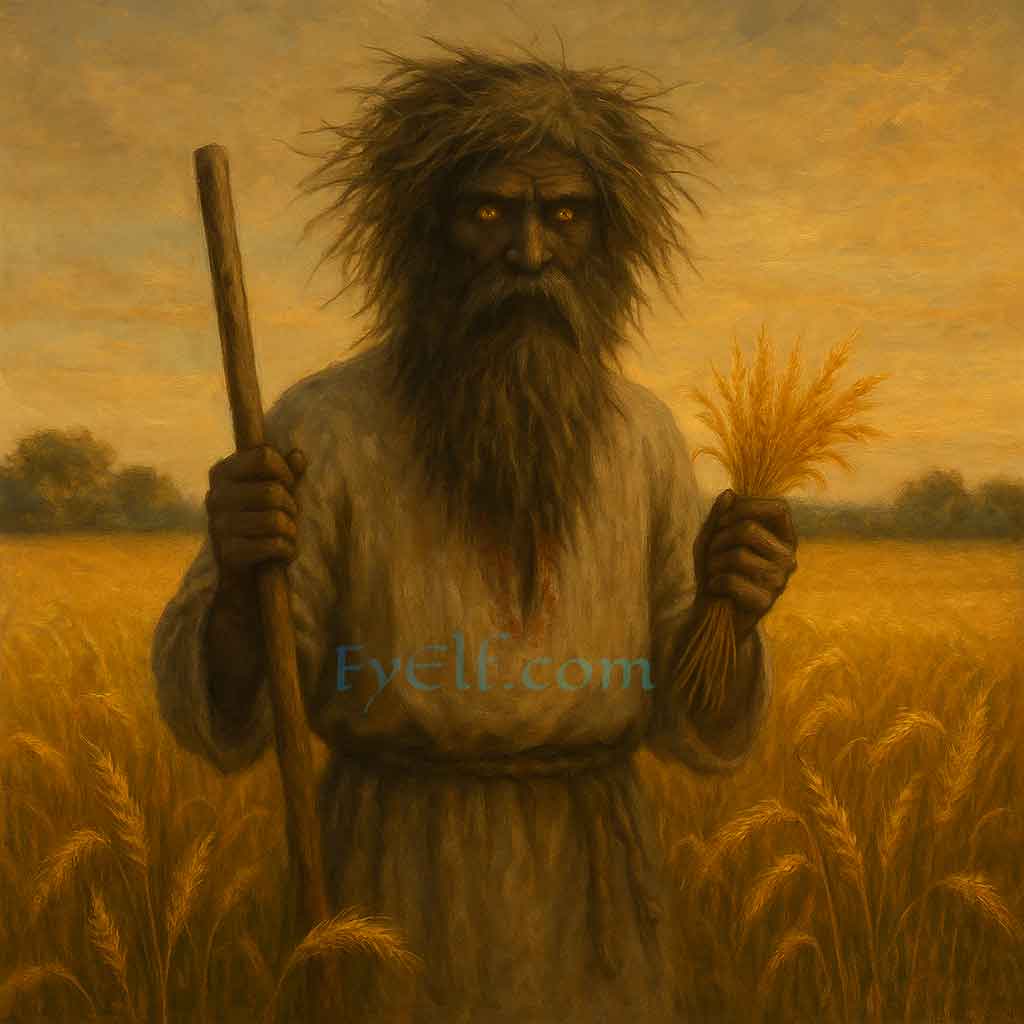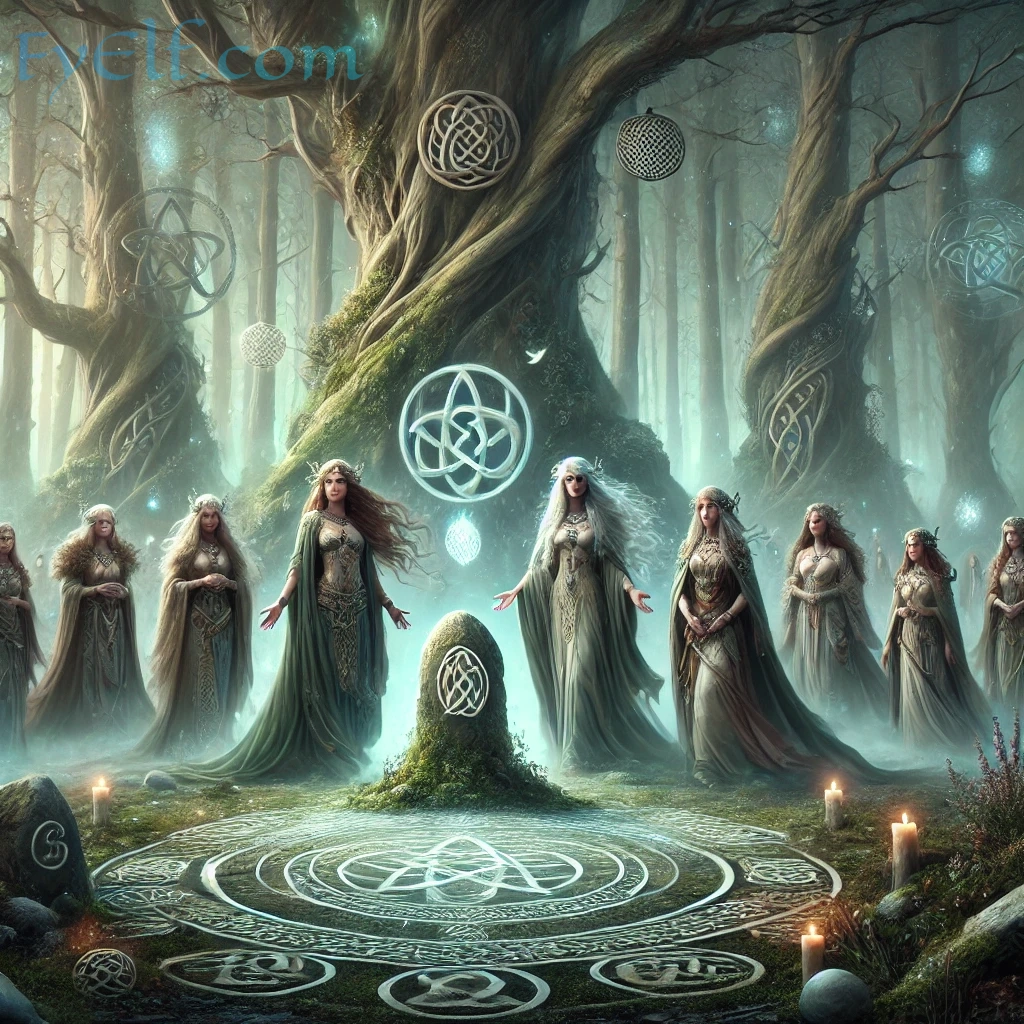In the vast landscape of Slavic mythology, spirits were believed to inhabit nearly every corner of life: forests, rivers, homes, and even the fields that sustained entire communities. Among these beings was Polevoy, the field spirit, a guardian and trickster tied to agriculture, fertility, and the cycles of planting and harvest.
For the agrarian societies of Eastern Europe, the field was not just a workplace but a sacred space where life and survival depended on the rhythms of nature. Polevoy embodied that space, both rewarding farmers with fertile crops and punishing those who neglected or disrespected the land.
Who is Polevoy in Slavic Mythology?
Origins of the Field Spirit
The name Polevoy comes from the Slavic word pole, meaning “field.” He was considered the spirit who roamed the open fields, particularly at noon, when the sun was at its strongest. Farmers believed that encountering Polevoy in this scorching hour could be dangerous, as he could bring dizziness, sunstroke, or madness to those who disrespected the land.
Role in Agricultural Life
As agriculture was central to Slavic livelihood, Polevoy represented both the fertility of the soil and the dangers of working under the harsh sun. He served as a reminder that the fields were not merely human property but sacred spaces inhabited by supernatural guardians. To prosper, people had to respect the spirit world as much as they did the natural world.
Polevoy’s Appearance and Characteristics
Descriptions from Folklore
Folklore paints Polevoy as a strange and unsettling figure. He was often described as dark-skinned, with hair the color of earth, dressed in white or green clothing made of field grass. His eyes glowed like embers, and he sometimes carried tools of farming or bundles of crops.
Some traditions portrayed him as a frightening presence with long, thin limbs and a body covered in dust and soil. Others depicted him as more neutral—neither good nor evil, but unpredictable depending on how he was treated.
Seasonal Associations with Crops and Harvest
Polevoy’s presence was most strongly felt during the planting and harvest seasons, when the success of the crops determined the well-being of entire villages. Farmers believed that Polevoy could bless the fields with abundance—or curse them with blight—based on human behavior.
Symbolism of Polevoy in Slavic Beliefs
Fertility and Growth of the Fields
At his core, Polevoy symbolized fertility and growth. His favor ensured the flourishing of grain, wheat, and other crops essential for survival. In this way, he was linked to the eternal cycle of sowing and reaping, birth and death, scarcity and abundance.
Connection Between Humans and Nature
Polevoy also embodied the relationship between people and their environment. The Slavs saw themselves as part of a living ecosystem inhabited by spirits. The field was not just soil to be exploited but a realm with its own will and guardians. By respecting Polevoy, humans acknowledged their dependence on nature’s balance.
Rituals and Offerings to Polevoy
Folk Practices During Planting and Harvest
To gain Polevoy’s blessing, farmers performed rituals and offerings at the edges of fields. These might include:
- Placing bread, salt, or milk in the fields before planting.
- Offering the first sheaf of wheat to the spirit at harvest.
- Leaving a patch of uncut grain in the field, known as “Polevoy’s beard,” to appease him.
These customs reflected the belief that spirits must be honored with a share of the harvest in order to ensure future fertility.
Protective Charms and Prayers for Fertile Land
Villagers also used protective charms to guard against Polevoy’s anger. Wearing wreaths of herbs, carrying iron tools, or saying prayers before working in the fields at noon were common ways to avoid his wrath. These practices reinforced the idea that labor was not only physical but spiritual.
Polevoy Among Other Slavic Nature Spirits
Comparison with Domovoi (House Spirit)
Like the Domovoi, who protected the household, Polevoy was tied to a specific human domain: the fields. Both spirits demanded respect, offerings, and rituals, rewarding obedience and punishing neglect. Together, they represented the intimate relationship between humans and their environment.
Links to Polevikha (Female Counterpart)
Some traditions mention Polevikha, a female counterpart of Polevoy, who also haunted the fields. She was often seen as more benevolent, embodying the nurturing aspects of the earth, while Polevoy carried a sterner, more dangerous presence.
Place in the Broader Slavic Pantheon
Polevoy belonged to the broader category of nature spirits that populated Slavic belief:
- Leshy – guardian of forests.
- Vodyanoy – spirit of rivers and lakes.
- Rusalka – water nymphs tied to fertility and danger.
Polevoy was their agricultural counterpart, emphasizing how every environment was thought to have a supernatural guardian.
Myths and Legends of Polevoy
Stories of Blessings for Farmers
In some tales, Polevoy helped hardworking, respectful farmers by ensuring their crops thrived. Villagers who followed rituals and gave offerings were rewarded with abundant harvests, healthy livestock, and prosperity.
Tales of Anger When Fields Were Neglected
Other stories warned of his wrath. Farmers who worked at noon without resting or who failed to honor Polevoy might collapse from exhaustion, suffer illness, or even die in the fields. In this sense, Polevoy symbolized the dangers of hubris and disrespect toward the natural order.
The Legacy of Polevoy in Modern Culture
Influence on Slavic Traditions and Festivals
Though belief in Polevoy has faded, echoes remain in rural traditions. Customs like leaving offerings in fields, celebrating harvest festivals, or blessing the land before planting carry traces of Polevoy’s influence. These practices reflect the enduring respect for the fertility of the soil.
Presence in Literature, Art, and Folklore Revival
In modern times, Polevoy has reappeared in literature, folklore studies, and even fantasy fiction. Writers and artists exploring Slavic mythology often draw on him as a symbol of agriculture, mystery, and the supernatural world of the fields. Contemporary Slavic neo-pagan groups sometimes reference Polevoy in rituals honoring the cycles of nature.
Conclusion: Polevoy as Guardian of the Fields
The myth of Polevoy, the Slavic field spirit, reflects the deep connection between humans and the land that sustains them. Both feared and respected, Polevoy symbolized fertility, hard labor, and the sacredness of agriculture. His stories reminded villagers that the field was not just a workplace but a living, spiritual realm where balance had to be maintained.
Even today, Polevoy’s legend endures as a symbol of respect for nature’s cycles. For modern readers, he offers a glimpse into how ancient people understood survival: not as dominance over the land, but as a partnership with the unseen forces that watched over every seed, stalk, and harvest.




